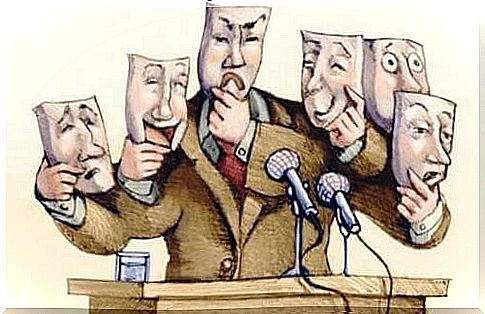Political Stress: When The Political Class Disappoints

Many people are starting to suffer from political stress. Uncertainty, apathy towards the political class and its messages, weariness for its internal disputes and, above all, the weight of corruption are increasingly eroding the trust of citizens. These are situations that cause negative emotions: sorrow, disappointment, anger, sadness …
Jorge Luis Borges argued that politicians shouldn’t be public figures. This sentence embodies a reality that many question. Because of their behavior, their personalities and their bad decisions, some politicians shouldn’t be public figures. They do not set the right example, they are not a source of inspiration and, even worse, they are unable to maintain power.
Current world politics is very complex. The advance of extremisms, independence movements, the drama of immigration, corruption and the retreat of social policies make us plunge into a spiral of mistrust.
In addition to mistrust, another factor is added: the contamination of journalistic information. Information, opinions and news filtered daily with greater or lesser truthfulness through the media: television, radio and social networks. All this leads us to feel indignation or apathy.
The first can lead us to react, to shake ourselves, to take an active role, to desire change. The second brings with it discontent and, very often, the absolute loss of trust in any representative or political party. All these experiences start from a concrete reality: the political stress syndrome.

What is political stress syndrome?
Political Stress Syndrome does not appear in any clinical textbook. It’s a popular term that appeared in a Psychology Today article , analyzing the impact of political stress on the child’s mind.
We do not know if it will be included in the future in the DSM-V ( Diagnostic and Statistical Manual of Mental Disorders ), but it is clear that it is a reality subject to analysis by scientists, politicians and social psychologists. So much so that we can even describe the “symptoms” already. Let’s see it in detail.
Triggers of political stress
Political Stress Syndrome is mediated by many factors. In turn, these will have a greater or lesser impact depending on the personality and needs of each individual. Here are some constants that characterize it:
- Feeling that the political class cares less and less about its constituents and more and more about their personal interests.
- Implementation of policies that favor the wealthy classes.
- Lack of contact with voters in political speeches.
- Lack of collaboration between representatives of the same political class to reach agreements and promote a relaxed climate that favors the population and the planet.
Political uncertainty
Today we all go to bed not knowing what will happen tomorrow. We wake up every day with new news about corruption, wiretapping, layoffs and new appointments, disagreements, threats, immigrants losing their lives, terrorist attacks …
To these facts are added the unpleasant social experiences that the citizen lives every day with great concern, as in the case of the increase in taxes. The current political situation forces citizens to a state of almost absolute unpredictability.
From indignation to impotence
Uncertainty is very interesting from a psychological point of view. It is common to feel indignant as they are exposed daily to scandals, corruption and legislative decisions that harm the citizen. Gradually resignation occurs and we end up no longer surprised by the scandals and the insolence of the political class.
Almost without realizing it, a part of the population becomes apathetic and helpless. An example is the completely inappropriate public scenes of some of our representatives. We laugh and after a while we forget. We tolerate inconceivable situations on the part of public figures who, as Borges said, do not represent us with dignity.

How to manage political stress?
Certain attitudes on the part of the political class are a constant: they have occurred throughout history and will probably continue to do so. However, today the media are heightening their impact; hence political stress.
We refer to the disclosure of toxic and viral information on junk television; moreover, the same topics are always discussed to divert attention from the really important problems. How can we cope with political stress syndrome?
- We must not give in to impotence.
- As with all other forms of stress, there is no point in remaining passive, as we will further intensify the malaise. The key is to control exposure to news: just watch and read what’s appropriate.
- Worry about receiving accurate information and never lose your critical sense.
- Feeling dissatisfied with the work of the political class is lawful, respectable and understandable. However, if we fall into helplessness and passivity, we will allow these situations to become chronic.
Activism, active participation in the public sphere, is one of the most precious rights of the citizen. Just think of all the struggles of the past to get it. Politicians are our representatives to the extent that we have elected them.
The problem arises when the politician wants to take advantage of his position to deceive the society that has granted him a privileged status. This problem could disappear if citizens decide to dismiss those who betrayed them.









